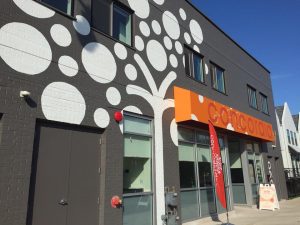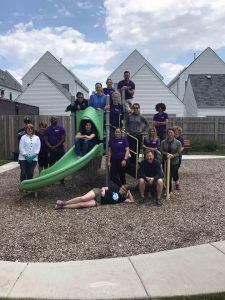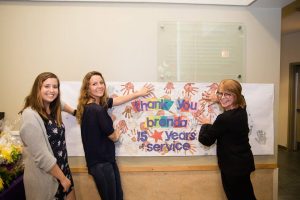I’ve been home from Chicago for about two weeks now, trying to organize my life post-internship and preparing for stepping back into my role as a student after two long months of playing a professional adult role. Its an interesting regression, as I think I was finally getting the hang of adulthood and now I can choose to let go of that persona for another year before the permanence of adulthood kicks in. Although I’ve found some aspects of adulting enjoyable, I’m relieved that I still have some time before I have to adult to that extent again.
The beauty of the CAPS fellowship is exactly that. You get a taste of a career path or field and how you need to function within that field, but nothing is permanent. At the end of the summer, you get to say your goodbyes and step away from that experience, and have time to evaluate it all. What you liked, what you didn’t like, if it’s the path you want to pursue. In such a pivotal time in one’s life, it’s a great resource for helping to decide what steps to take next.
I knew coming into this summer that I might not end it with clarity about what I want to do. It might provide me instead with some clarity about what I don’t want to do, or help me to grow or shorten my list of potential career options. While this is a frustrating concept for someone who is surrounded by people in their life who graduated from college and immediately found that fit for them, whether that be nursing, engineering, or any other number of professions that has a more linear path, it is something that we liberal arts majors are just going to have to live with.
My education at Valpo, through Christ College, leadership positions, and studying sociology and political science, has equipped me with a wide and unique set of skills. That being said, these skills are applicable to a multitude of fields and careers. I have a lot of options post graduation, and I’ve felt the weight of that since very early on in my college career. It often feels like an impossible task to decide on one career or path. And now I realize that I don’t have to.
One of the things I’ve tried to make a priority while working at Concordia Place is to ask my coworkers their “story”. I have been collecting the stories of how they ended up working at this nonprofit in Chicago, and have learned that the answer is exactly what I suspected (and kind of feared) to be true: trial and error. They all come from different schools around the country, whether it be Tennessee, Colorado, Illinois, New York, etc. And they all have worked in several different fields, and different positions within those fields. They learned what their strengths were as they progressed through each position, and some of them are still trying to figure that out now, at Concordia Place. Some went immediately to graduate school after college, some waited a few years after working a few different types of jobs so that they could be more sure of what they want to go into even more debt studying.
As a “planner”, it can be disheartening to hear to that I can’t fully plan out my future in a linear way. I know that it should excite me that there are endless possibilities, but it’s not the easiest idea to get used to. No one prepares you for that, especially in a society that expects you to have an idea of what you want to do with your life when you graduate high school at a mere 18 years old.
One beautiful Friday morning, I went to a nonprofit panel geared towards interns. I plugged the address my boss gave me into Google Maps and started walking. I was pretty surprised when I ended up in front of the Sears/Willis Tower (I’ve gotten a lot of crap for calling it either, so pick your poison). I got to listen to career advice while looking out at Lake Michigan, and it was an experience that will stick out when I think back on this summer. The most important piece of advice was that you can’t plan out your whole career path now, and you shouldn’t even try. Hindsight is 20/20, and only when you’re looking back does your career path make any sense, according to the knowledgeable and highly qualified panelists. Seeing how far the panelists had come in their careers, despite their paths being completely different than what they had anticipated at my age, is a comfort. I’m working on learning to let go of my obsession with planning and instead, let life do its thing.


